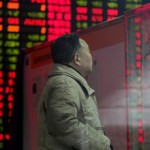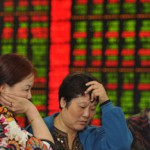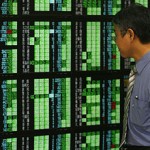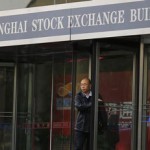Asian Markets Brace for Fed Decision
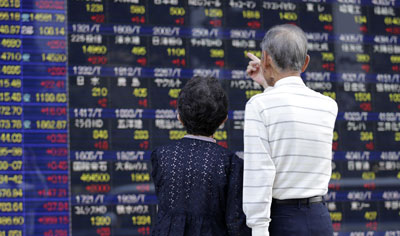
Stocks in Shanghai deepened losses ahead of possible U.S. rate increase
Shares in Japan pared gains after the Bank of Japan tempered its assessment of the country’s economy, while elsewhere, China led markets lower ahead of a decision on interest rates in the U.S.
The Shanghai Composite Index fell 2.5%, deepening a 2.7% loss from Monday. That pressured the region: Australia’s S&P/ASX 200 fell more than 1%, while the Hang Seng Index slipped 0.3%.
The Nikkei Stock Average gained 2% before the BOJ announced after its latest policy meeting that it would refrain from additional easing steps, but was last up 0.9%.
The region was weakening again, after the Shanghai benchmark had eked out gains last week for the first time since mid-August and helped lifted neighboring stocks. While China’s government has intervened to prop up its domestic market, a recent batch of disappointing Chinese data has spurred further selling.
“I think the markets are still very much on edge ahead of the Fed meeting,” said Sean Callow, a currency strategist at Westpac Banking Corp. “There is some nervousness exported from China, when their markets came under pressure yesterday,” he added.
U.S. stocks slipped Monday, with many investors staying on the sidelines ahead of that two-day meeting of U.S. Federal Reserve, which starts Wednesday U.S. time and could end with the first rate increase in nearly a decade.
Economic reports out of China on Sunday—factory output and fixed-asset investment—fell short of expectations, adding to concerns that China could struggle to reach its full-year growth target of 7%. China’s shift away from certain kinds of manufacturing have hurt global trade growth: For the third year in a row, the rate of growth in global trade is set to trail the already sluggish expansion of the world economy, according to data from the World Trade Organization and projections from leading economists.
In a statement released after a two-day policy meeting, the Bank of Japan said that exports and industrial production “have recently been more or less flat,” after saying last month that they were “picking up.” It also reworded its main overall description of the economy to “Japan’s economy has continued to recover moderately, although exports and production are affected by the slowdown in emerging economies.”
And in a new reference that may allude to China’s economic troubles, the bank said Japan’s sluggish exports were due to the “effects of the slowdown in emerging economies.”
Some analysts now think the bank may take further action, possibly next month, as recent data has suggested Japan’s economy remains in a rut, shrinking 1.2% in the April-June quarter. The Nikkei ended Monday down 14% from its late-June peak.
After the BOJ’s decision, the U.S. dollar briefly hit as low as ¥119.91 from ¥120.34. “I didn’t expect this much of a reaction,” said Takuya Kanda, senior researcher at Gaitame.Com Research Institute. “I felt expectations for BOJ easing were mounting” this morning, as indicated by the Nikkei’s gains earlier, he said.
The Reserve Bank of Australia’s minutes from its latest policy meeting showed a neutral tone to its outlook for interest rates. The bank lowered rates to a record low of 2.0% in May, to counter a slowing economic growth and falling commodity prices.
A party rebellion late Monday installed former investment banker Malcolm Turnbull as the country’s fourth prime minister in just over two years, exposing deep unease about the country’s sharply slowing economy.
Australia grew at its slowest pace in four years in the second quarter, and analysts warn the country might slide into recession for the first time in close to 25 years. Its stock market is down roughly 15% from its late April peak as of the close yesterday.
Source: WSJ – Asian Markets Brace for Fed Decision









